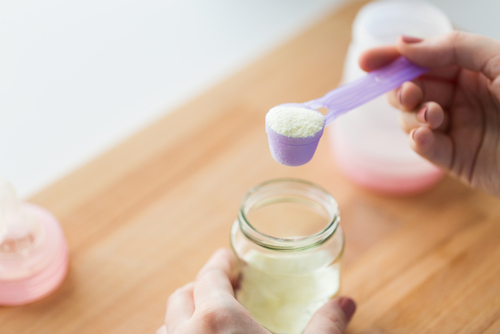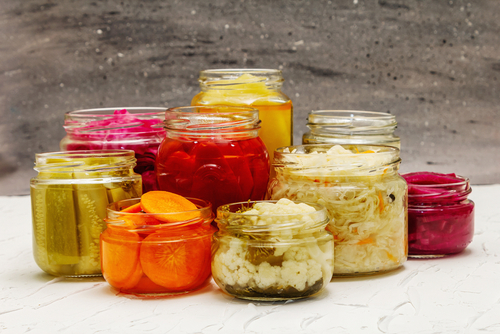What to know about Probiotics for Babies? As a new parent, you want to give your little one the absolute best start in life. And that includes their health! Recently, probiotics have been gaining traction as an important part of baby nutrition. These living microorganisms can offer plenty of benefits when consumed properly. But how do parents make sure they are giving them safely? Learn all about what it takes for infants to reap those good-gut rewards right here.

Looking to ensure your little one has a healthy and balanced gut? Don’t worry, we’ve got you covered! In this blog. You’ll learn all the ins and outs of probiotics. What they are, why they’re beneficial for babies (plus any potential risks!), as well as how best to select the perfect probiotic specific to your child’s individual needs. Get ready – it’s time to give the baby’s system some TLC!
Probiotics for Babies:
Today’s market offers a wealth of probiotic options for babies. Probiotics are an exciting way to boost your little one’s gut health and overall well-being. As they replicate the beneficial bacteria naturally found in their tummies! Maintaining optimal balance within their digestive system is key to helping them feel vibrant inside and out!
With a variety of benefits, it’s no surprise that probiotics have become the go-to choice for new parents. From helping reduce gas and bloating to boosting immunity. These magical microorganisms can make all the difference in your little one’s health! When choosing which probiotic is best suited for infants though, be sure to read labels closely; only natural colors & flavors are allowed here, folks!
Probiotics are good bacteria:
Got kids? Make sure they’re getting their daily dose of probiotics – no prescription is required! It’s as easy as adding yogurt to the grocery list. Better yet, why not try introducing sauerkraut or some other fermented vegetables for a tasty twist? Your little ones’ microbiomes will thank you later.
Probiotics for Infants: The Good and Bad
Wondering how to best support your little one’s digestive system? While breast or formula milk are great starting points, they can be further enriched with probiotics – a critical component often not produced naturally in sufficient amounts. And if you’re worried about tummy troubles that may go undetected due to lack of verbalization… consider supplementing with good bacteria! Rest assured knowing it’ll help keep those smiles and giggle intact.
Is your baby bloated and gassy? It could be a sign of bacterial imbalance in their gut. Consider giving them probiotics – they may not only help reduce gas but also promote better digestion, resulting in less tummy trouble!
When it comes to probiotics, not all super-bacteria are created equal. Maximize your gut’s goodness with Lactobacillus or Bifidobacterium strains – scientific studies have shown that these provide the most potent protection for digestive health!
Choosing a probiotic supplement for your little one is an important decision, and it pays dividends to consider how you want to deliver the goods. Want quick-and-easy? Pick up some powder for direct bottle feeding – no fuss or muss required! Prefer something more precise? Look out for capsules – simply open them and stir into breastmilk or formula before serving. No matter what suits best, there’s sure to be a great choice that fits both your lifestyle AND baby’s belly needs!

Probiotic Formula:
Too much sugar can spell trouble for babies! Since their digestive systems are still developing, the excessive sugary formula could lead to uncomfortable gas and poops. So think twice before giving your baby a high-sugar drink – it might be sweet at first but in the end, you’ll both regret it!
Probiotic Capsules:
Give your baby’s body the nutrients it needs to reach its fullest potential with probiotics! Whether you opt for capsules, drinks, or food – like yogurt, sauerkraut, and dark leafy greens – these handy solutions offer powerful live cultures that can boost their immune function.
Probiotic Powder:
No matter what your little one’s fussiness level is, probiotic powder can be a tasty solution for supporting their microbiome. Just add it to the liquid or food of choice and you’re done – easy peasy!

Probiotic Drops:
Are probiotics part of your baby’s daily routine? If not, consider adding in a few drops – they’re an easy and effective way to give little ones all the benefits that come with them! Simply add the recommended amount of milk or water for a daily sip. Or get creative by sprinkling some onto their favorite mealtime snack!
What are the benefits of Probiotics?
Probiotics are like superheroes for babies! These powerful capsules can protect infants from common maladies, enhancing their immune systems and helping them to heal quickly after illnesses. Not only do they soothe upset tummies, but research shows that probiotic acidophilus could even help relieve eczema or allergies – giving parents the peace of mind to get back on track with daily life faster without worrying about a relapse in these difficult conditions.
The little tummies of babes may benefit from a natural boost. Probiotics are known to aid a baby’s digestive system and even help fend off some everyday illnesses! Before you jump in, chat with your pediatrician — they’ll know what’s best for that special bundle of joy.
Should you feed your child probiotic foods?
A study has revealed that the regular consumption of probiotics may not just protect children from common illnesses like diarrhea and respiratory issues, but it could also drastically reduce their chances of developing more serious childhood conditions such as allergies or autoimmune diseases in later life. While further studies are needed to support these findings, this simple dietary supplement looks set to be a powerful defender for kids against health woes down the line!
How do you know if your food has probiotics?
With all the buzz around probiotics, it can be hard to spot which yogurts actually contain them. To make sure you’re drinking in those health benefits, look for pasteurized yogurt with live active cultures on its ingredients list!
When investing in yogurt, make sure to check the label for its probiotic power! Look out for 100 million cultures per gram and special names of beneficial bacteria – these are your ticket to a healthier tummy.
Get your probiotic fix with some homemade fermented foods! Whether it be yogurt, sauerkraut or even pickles made using lacto-fermentation techniques – there’s no shortage of ways to stock up on good bacteria and an array of B vitamins. Not only will these goodies support a healthy gut but also provide omega-3 fatty acids for well-rounded health benefits. Dig in!
Fermenting food can be quite an acquired taste – but the benefits are totally worth it. It’s a powerful way to give you and your child more vitamins, proteins, minerals, and probiotics than they would get with regular meals. So next time you’re looking for something special in your kitchen – why not try out some fermentation?
Final Thoughts:
Did you know that probiotics can be a powerful health booster for your little bundle of joy? From aiding digestion to boosting their immune system, it’s well worth considering chatting with the doctor about keeping those microbes happy. Remember to look out for live cultures when selecting probiotic foods and try fermented options like sauerkraut: packed full of beneficial vitamins and omega-3 fatty acids – yum!
Reading suggestions:


